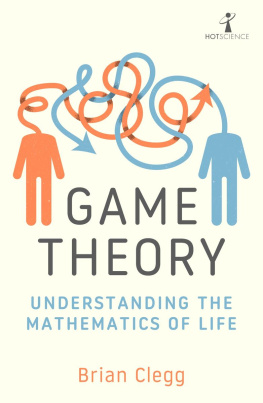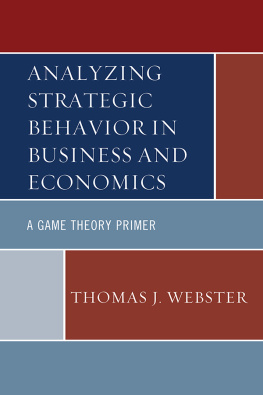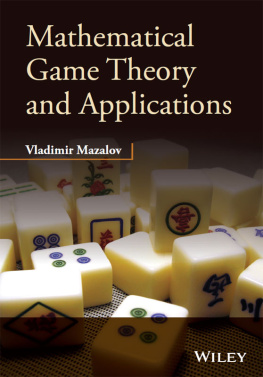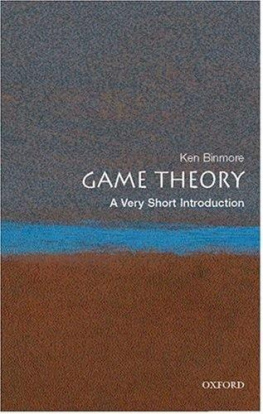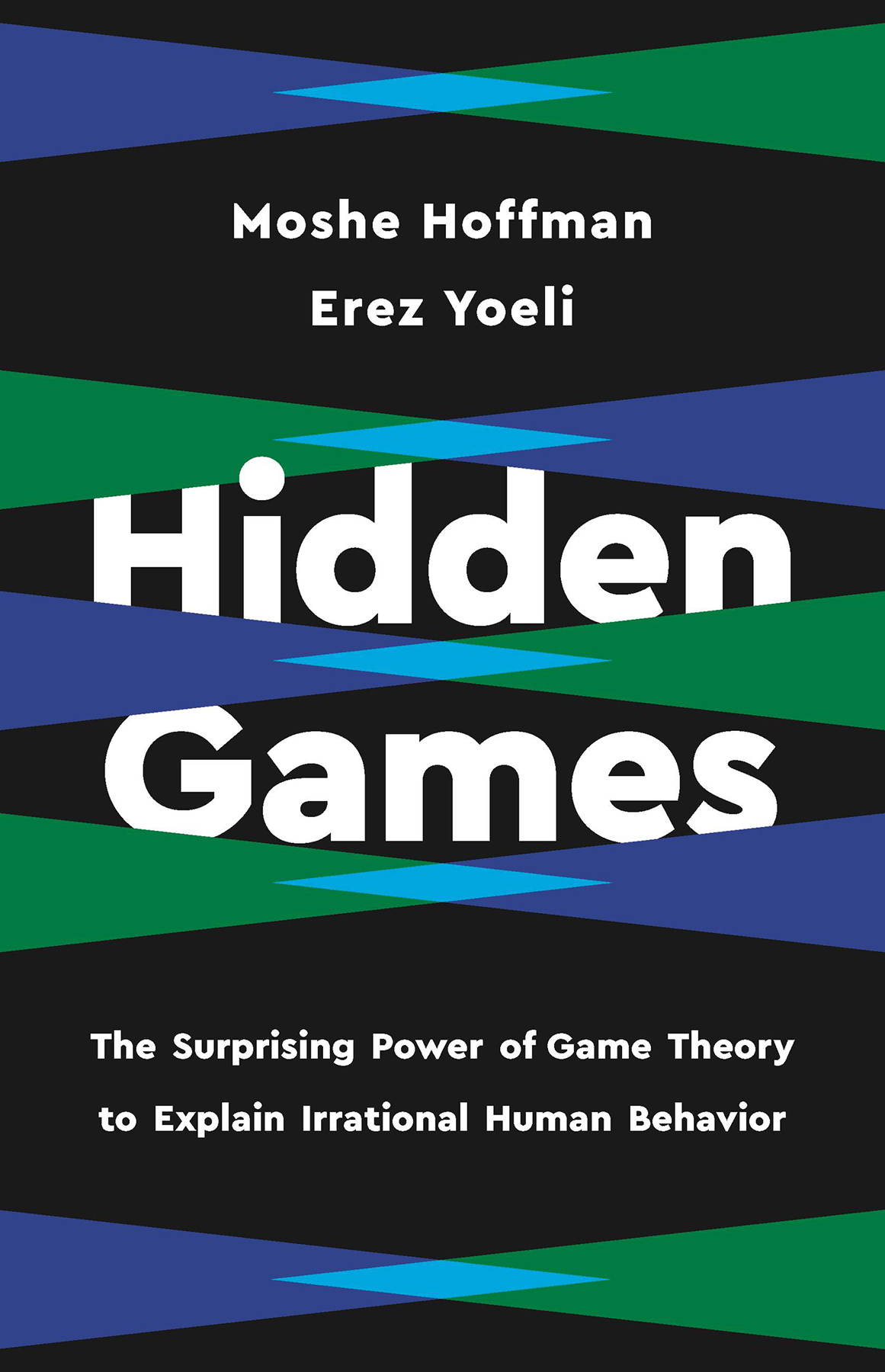This is one of those books that you pick up and then cant put down; next thing you know, youve been reading for hours and forgotten to go to bed (true story). Filled with quirky facts and perspective-shifting insights, Hidden Games explains some of human beings most puzzling behavior with one of the most powerful theories ever devised: game theory.
Steve Stewart-Williams, author of The Ape that Understood the Universe
In this fascinating book, Hoffman and Yoeli show how the tools of economics can be used to understand a wide range of real-world phenomena. The authors show time and again that many types of human behavior which seem inconsistent with consciously rational behavior can be understood once we realize that those same forces are operating below the surface. Indeed, this book shows the magic of what is hidden from view.
Kevin M. Murphy, MacArthur fellow and professor of economics at the Booth School of Business, University of Chicago
Hidden Games is a great read. Hoffman and Yoeli show how widespread but puzzling behavior can result from self-interest, explaining subtle, important ideas in a snappy, accessible style.
Rob Boyd, author of A Different Kind of Animal
Copyright 2022 by Moshe Hoffman and Erez Yoeli
Cover design by Ann Kirchner
Cover copyright 2022 by Hachette Book Group, Inc.
Hachette Book Group supports the right to free expression and the value of copyright. The purpose of copyright is to encourage writers and artists to produce the creative works that enrich our culture.
The scanning, uploading, and distribution of this book without permission is a theft of the authors intellectual property. If you would like permission to use material from the book (other than for review purposes), please contact permissions@hbgusa.com. Thank you for your support of the authors rights.
Basic Books
Hachette Book Group
1290 Avenue of the Americas, New York, NY 10104
www.basicbooks.com
First Edition: April 2022
Published by Basic Books, an imprint of Perseus Books, LLC, a subsidiary of Hachette Book Group, Inc. The Basic Books name and logo is a trademark of the Hachette Book Group.
The Hachette Speakers Bureau provides a wide range of authors for speaking events. To find out more, go to www.hachettespeakersbureau.com or call (866) 376-6591.
The publisher is not responsible for websites (or their content) that are not owned by the publisher.
Figures designed by Jessica Weisman
Library of Congress Cataloging-in-Publication Data
Names: Hoffman, Moshe, author. | Yoeli, Erez, author.
Title: Hidden games : the surprising power of game theory to explain irrational human behavior / Moshe Hoffman and Erez Yoeli.
Description: First edition. | New York : Basic Books, [2022] | Includes bibliographical references and index.
Identifiers: LCCN 2021045076 | ISBN 9781541619470 (hardcover) | ISBN 9781541619463 (ebook)
Subjects: LCSH: Game theory. | Human behavior.
Classification: LCC HB144 .H634 2022 | DDC 658.4/0353dc23
LC record available at https://lccn.loc.gov/2021045076
ISBNs: 9781541619470 (hardcover), 9781541619463 (ebook)
E3-20220204-JV-NF-ORI

Erez Yoeli
Moshe Hoffman is a research scientist at the Max Planck Institute for Evolutionary Biology and lecturer at Harvards department of economics. His research focuses on using game theory, models of learning and evolution, and experimental methods to decipher the motives that shape our social behavior, preferences, and ideologies.
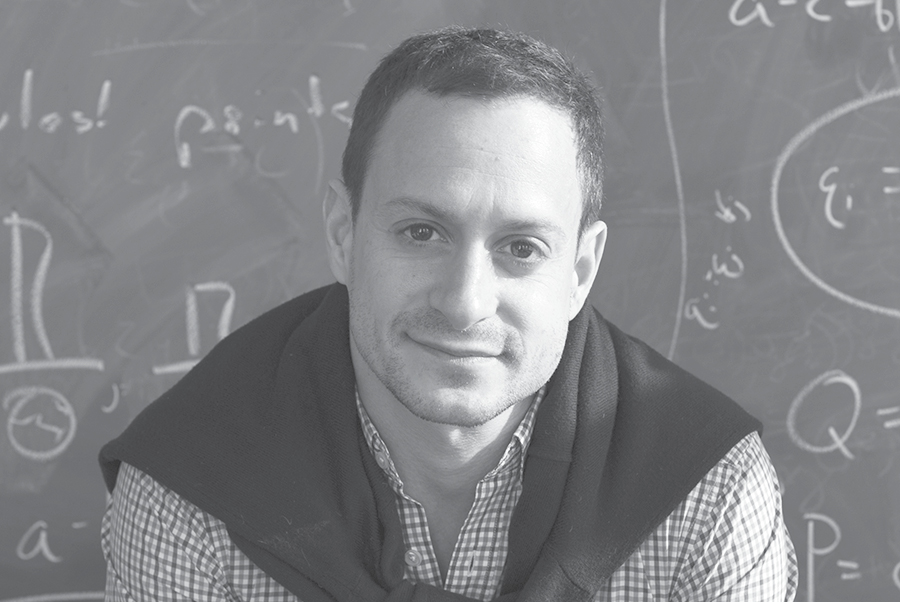
Rachel Tine
Erez Yoeli is a research scientist at MITs Sloan School of Management, where he directs the Applied Cooperation Team (ACT). He is also a lecturer at Harvards department of economics. His research focuses on altruism: understanding how it works and how to promote it.
FOR MANY OF US, IT MIGHT BE HARD TO IMAGINE THAT THE COVER OF Sports Illustrated , which we are used to seeing adorned by athletes and models sporting bats, balls, helmets, and bikinis, once featured the laughing, square-jawed face of Bobby Fischer. The 1972 cover, now a collectible on auction sites like eBay, celebrated Fischers unprecedented twenty-game winning streak, not in baseball, basketball, or footballbut in chess. Fischers performance in the game, and his dominance over Soviet rivals, had catapulted him into the public eye like no other chess player before or since. Many of the games greatest players considered him, and still do, to be the greatest of all timethe GOAT, to use the term usually applied to the likes of Michael Jordan, LeBron James, Simone Biles, Katie Ledecky, and Tom Brady.
How did Fischer, who grew up in Brooklyn in a cash-strapped, single-parent household, become so great? The answer is no different from the one that might be given for the likes of Jordan, James, Biles, Ledecky, and Brady: a touch of luck and a ton of practice, motivated by an obsessive passion. Frank Brady, Fischers longtime biographer, reports that by the time he was nine, if Bobby wasnt playing chess then he was studying it, bent over his board or book in such a rapture that he wouldnt pause to turn on the apartment lights when it grew dark. To coax him into the bath, his mother would lay a cabinet door over the tub and place his chessboard on top of it. (Getting him to then leave the tub was another challenge.) He certainly couldnt be bothered with school, which he quit as soon as it was legal to do so.
Indeed, an obsessive passion is a key ingredient in the success of so many greats.
When Itzhak Perlman, the virtuoso violinist, first asked to play after hearing classical music on the radio at the age of three, he was denied admission to a local conservatory on the grounds that he was too small to hold a violin. So, the sickly boy, who soon contracted polio and today is still bound to crutches and a wheelchair, taught himself to play on a toy fiddle. By the age of ten, he was giving critically acclaimed recitals, and at nineteen, he appeared on The Ed Sullivan Show for the second timealongside the Rolling Stones.
The mathematician Srinivasa Ramanujan was, in his short thirty-three years, so prolific that today an entire peer-reviewed journal is devoted to publishing results that derive or otherwise relate to those that he had claimed or proved. Like Fischer and Perlman, Ramanujan developed his passion at an early age, absorbing all he could from the college-aged lodgers who stayed at his mothers home and reading math textbooks cover to cover. One, a collection of five thousand theorems that is particularly credited with elevating his genius, would be impossibly tedious even to the most enthusiastic participant in a high school Olympiad. As an adult, his work engrossed him so fully that he neglected his wife and even his own health, dying from complications of dysentery that doctors now think could have been cured had Ramanujan bothered to take a break from work to receive care.
Or what about Marie Curie? Shes still the only person to ever win two Nobel prizes in science. As a student in Paris, she was so engrossed in her studies that she often forgot to eat. She would remain so engrossed until her dying day, eschewing prizes and awards because they took her away from scientific pursuits. She even failed to acquire the funds from her (second) Nobel Prize out of what she termed sheer laziness. (She finally picked up the award money during World War I so she could contribute it to the war effort.)


